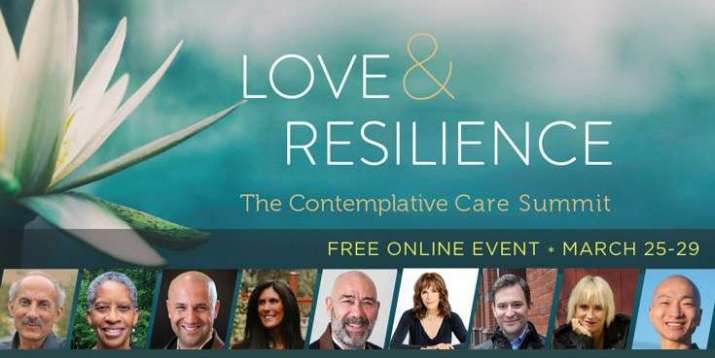
Monday marked the end of a five-day free online summit on contemplative care that was attended by a global audience. The event was organized by Lion’s Roar and the New York Zen Center for Contemplative Care (NYZC), a nonprofit organization in the Soto Zen lineage of the White Plum Asanga.
During the opening event on 25 March, life partners and co-founders of the NYZC Sensei Koshin Paley Ellison and Sensei Chodo Robert Campbell highlighted the universal inescapable inevitability of aging, illness, and death. They invited guest speakers and participants to embark with them on a five-day exploration into what it means to be present and to offer care during this process.
“We are so honored to partner with our friends at Lion’s Roar and our circle of loving friends to speak and practice with what matters most: love,” Koshin told Buddhistdoor Global. “We created five days to express the areas of contemplative medicine: loving relationships, right livelihood, right relationship with grief, loss, and dying, and imagination!”
The speakers included meditation teachers, Buddhist practitioners, medical doctors, and people from the entertainment industry, among others. While their careers and backgrounds varied, most of the speakers emphasized the importance of having a regular meditation practice or other contemplative practice to help weather the existential questions we all face, as well as the difficult circumstances of recent times.
“Our role is really the role of tending with love and understanding of how things flower in the deepest and most magical way. And that requires us to be in touch with that in ourselves,” said Jack Kornfield, founding teacher of the Insight Meditation Society and Spirit Rock Meditation Center.
It was widely acknowledged that the global COVID-19 pandemic has been an immense stressor, not only for those who work directly in the care industry, but for anyone who is in a caring position—whether they be an essential worker, a parent, a teacher, or a business leader.
“We are meeting the call of social isolation, burnout, and grief by meeting it with the essential aspects of contemplative medicine: wisdom and compassion,” Koshin told Buddhistdoor Global.
The summit also called attention to the fact that the pandemic has exacerbated historical and existing systemic inequities, particularly in the US. Cynthia Carter Perrilliat of the Alameda Care Alliance, and her daughter and sociologist Jasmine Hill both emphasized that Black people are dying from COVID-19 at double the rate of White people.
“Illness and dying are part of life, but they are not equal opportunity,” said Hill, pointing to the fact that the lives of people of color are constantly at risk due to the significant disadvantages they face in all aspects of society. “Contemplation is not passive observation. It is bringing ourselves close to those experiencing suffering.”
Together with these talks, the presenters offered poetry and guided meditations to foster a sense of exploration and connection with the audience. They also provided practical tips that people can use to connect with themselves and others.
Trudy Goodman, a founding teacher at Insight LA, encouraged healthcare workers to take a mindful walk when they go from one patient to another during their busy shifts—or even just a mindful breath if that is all they can manage. Dharma teacher Anushka Fernandopulle suggested that people bring their practice to the workplace, approaching their colleagues with an attitude of well wishing, or an attitude of non-aversion if that is all that can be mustered.
During a segment about loving relationships, some of the speakers—including the hosts, as well as Trudy Goodman and Jack Kornfield—spoke candidly as couples, exploring with their significant others the joys and sorrows of their lives together. They shared that they aspire to act as a sangha for each other; they practice receiving each other by listening deeply, without the need to ignore or fix things. If the summit made one thing clear, it is that we are all in this together because we are all in a relationship with each other.
As Koshin told Buddhistdoor Global: “Together we can turn toward what is difficult and together we rise up together.”
For those who missed the free live summit, lifetime access is available here with the option to make a single payment or sign up for a payment plan.
See more











